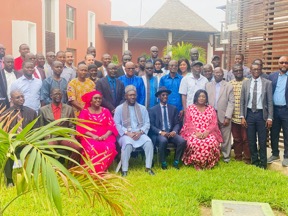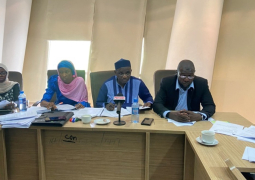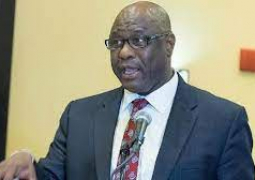
The Bilateral Coordination Meeting under the theme; “Coordination for Effective Communication” is sanctioned by the regulator, The Gambia Public Utilities Regulatory Authority (PURA), and for Telecommunication operators in the border countries such as the Gambian and Senegalese operators to negotiate equitable preferential Broadcast Control Channel (BCCH) and Traffic Control Channel (TCH) frequencies to minimise harmful interference along border areas.
The Director General of PURA, Yusupha M. Jobe highlights the key strategic objectives for the telecommunication sub-sectors including but not limited to the creation of a conducive environment for the establishment of a fully liberalised technology-neutral and competitive telecommunications sector.
Gambia and Senegal are members of the International Telecommunications Union (ITU), African Telecommunications Union (ATU), and ECOWAS.
Director Jobe explained that the ITU recommends members and neighbours meet periodically and not only coordinate but harmonise the spectrum of resources to ensure efficient delivery of interference-free services to customers, especially border areas.
Emphasising the importance of spectrum in this digital era, Mr Jobe said they need to constantly review the spectrum management frameworks in order to increase access and usage of Information Communication Technology in countries to transform the economies and improve service delivery.
He further said the frameworks will help to facilitate the realisation of the broadband goals as a strategic intervention towards the objective of ensuring a conducive policy, and a legal and regulatory framework that is responsive to industry demands.
On behalf of the Director General of Autorité de Régulation des Télécommunications et des Postes (ARTP), Senegal, Mandialy Bodian, pointed out that, under Article 6 of the Radio Regulations of the International Telecommunication Union, Member States may, within the framework of certain specific provisions of the ITU Constitution, enter into specific agreements concerning the sub-distribution of frequency bands between their interested services.
“There is no longer any need to prove that the exploitation of frequencies brings added value to the world of communications and to the information society in which we live,” Mr Bodian said.
He added that the frequencies are, in fact, used for various services ranging from sound broadcasting (FM or digital) to mobile telephony or electronic communications.
“One of their characteristics is that the frequencies do not stop at the borders. While each country has the sovereign right to use them to operate the services, simultaneous use of the same frequencies on either side of borders, without coordination, creates harmful interference to the services concerned.”
Mr Bodian recalled that in 2013, the provisions for the sharing of all services and between all countries, except Gambia and Senegal, were defined, adding that these were the Annexes to the Document.
Senegal and Gambia met in Banjul in 2017 to define channel sharing in the GSM 900 and 1800 bands, thus completing the 2009 Dakar Accords, he added.
Mr Bodian continued that, with the evolution of technologies, they have since moved from 2G to 4G today, and soon even 5G. It is therefore essential to evaluate and update these Sharing Agreements to take into account these developments and ensure the provision of quality services to border populations who are an integral part of the societies.
Serign Modou Bah, Director of Telecoms and Postal Services, Ministry of Communications and Digital Economy re-emphasised the importance of the digital economy, adding that it is important to have a coordinated and persistent approach to borders to enable smooth communication and exchange of information.
Over the years, Mr Bah said his ministry has endeavored to develop different policies and strategies and also invested healthily in different infrastructures so that they can be a global player in the global industries and achieve their vision of being a global player in telecommunication.
Read Other Articles In Headlines





